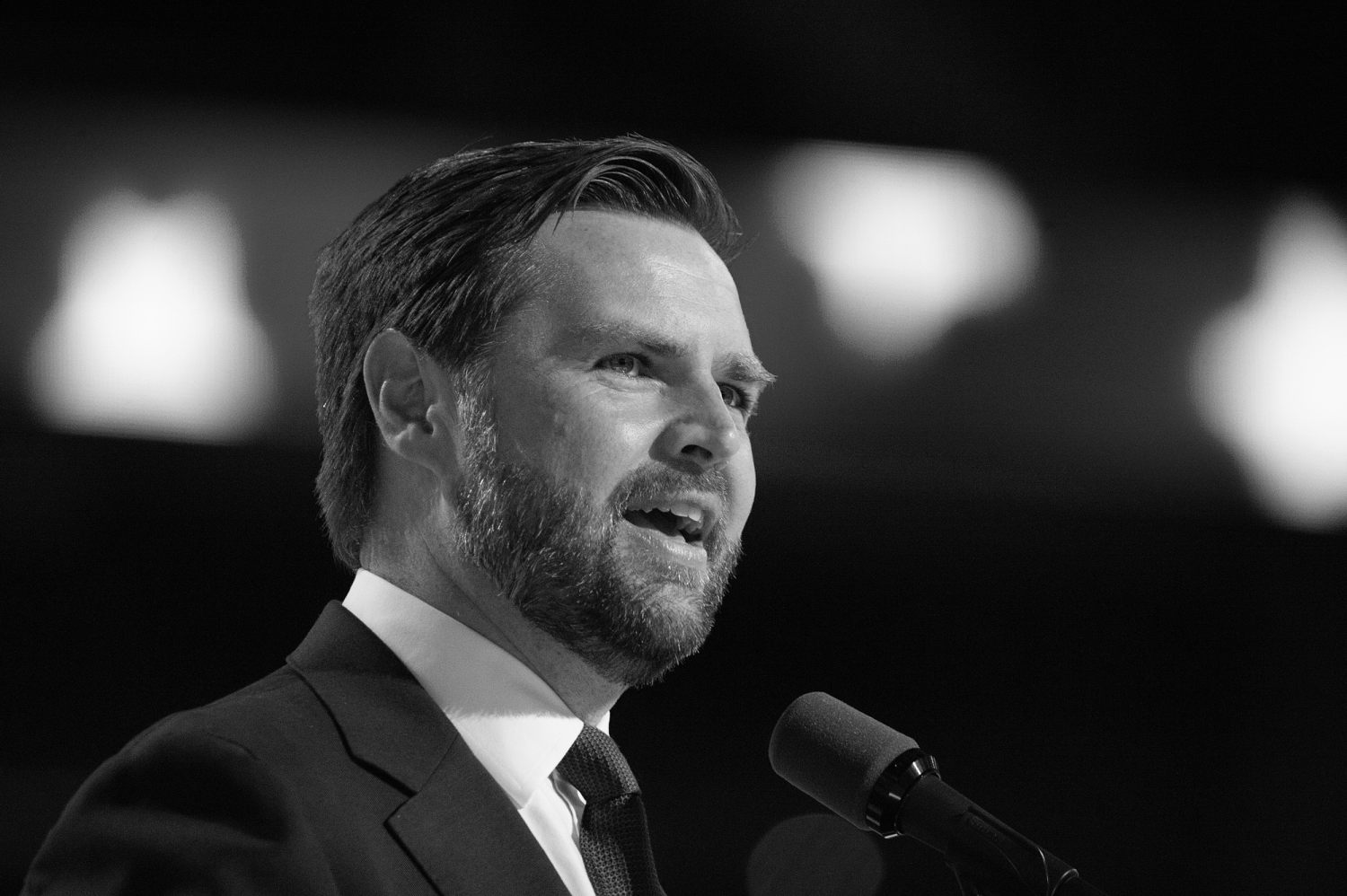
PARIS — All of the world’s worst people must have loved JD Vance’s speech Wednesday at the Republican National Convention in Milwaukee and must be taking great comfort in the plan to push America into a new and profoundly isolationist direction.
If the U.S., as Vance proposes, retracts from Europe and much of its traditional activities abroad and, not to mention, erects new barriers to commerce and the free exchange of ideas, it would create a vacuum ready to be filled. Who might fill it? Who would profit from the victory of a Trump-Vance duopoly?
If the U.S. retracts from Europe and much of its traditional activities abroad and erects new barriers to commerce and the free exchange of ideas, it would create a vacuum ready to be filled. Who might fill it?
Start with Hungary’s autocratic prime minister, Viktor Orban, and Russia’s Vladimir Putin, both of whom have been doing their best to cement Russia’s dominance of Europe’s eastern fringes and fighting every effort to contain Putin’s expanding ambitions. Orban, who just began his six-month rotation as leader of the European Union, and Putin have worked to cement ties with other similarly inclined political forces in Europe and with the GOP in the U.S., led by Donald Trump. “We need to go deeper, occupy positions, gather allies and fix the European Union,” Orban has said. “It’s not enough to be angry. We need to take over Brussels.”
They’ve had no shortage of allies in their expanding ambitions in the rest of Europe: newly empowered far-right forces like the AfD (Alternative for Germany) party, Marine Le Pen and her National Rally in France, and, in the U.K., the right-wing firebrand Nigel Farage, who showed up in Milwaukee to pay tribute to Trump and Vance.
Elsewhere, Israeli Prime Minister Benjamin Netanyahu can only be delighted by Vance’s expressed support for winning the war in Gaza “as quickly as possible,” which could mean at a great cost to the people of Gaza. In addition to Netanyahu, there are the deeply religious allies of Ayatollah Ali Khamenei in Iran — smarting over a recently elected reformist president who’s hoping to get sanctions lifted. A Trump administration would be intent on tightening those sanctions. Brazil’s former right-wing president, Jair Bolsonaro, a Trump admirer ousted by a left-wing opponent, is hoping for return to power in Brazil. After the assassination attempt on Trump, Bolsonaro called Trump “the greatest world leader right now” and pledged to be at what he hopes is Trump’s second inauguration in January. Then there’s Indian Prime Minister Narendra Modi, who’s barely hanging on after a recent tight victory. He cherished the close ties he had with Trump, and he is deepening his ties with Putin.
And of course, there’s Putin himself. Vance and Trump seem to share similar views on the war in Ukraine. They favor a quick peace deal, with Kyiv ceding substantial territory to Russia if necessary and agreeing to perpetual “neutrality.” Senior European diplomats fear that any such end to the conflict would only fuel Putin’s expansionist ambitions.
It was with a deep sense of relief that the European Parliament Thursday bestowed a second five-year term on former German Defense Minister Ursula von der Leyden as president of the European Commission. She’s a powerful ally of Ukrainian President Volodymyr Zelenskyy. Indeed, one of the cornerstones of her platform was a pledge to fashion “a true European Defense Union,” with the continent’s first defense minister, part of Europe’s efforts to Trump-proof its security.
This strain of American isolationism is associated with some of the most destructive periods in America’s past. Historically, the U.S. has never done well by disengaging from the world, putting up high tariff walls and avoiding armed conflicts abroad.
In the early 20th century, Senate Republicans, bitterly opposed to the Versailles Treaty negotiated by President Woodrow Wilson, a Democrat, succeeded in rejecting the pact and keeping the U.S. out of a League of Nations that the treaty would have established. That act of isolation laid the foundations for the rise of Hitler in Germany and the onset of World War II. The deeply protectionist Smoot Hawley Tariff, enacted in 1930 and immediately drawing retaliation from its target countries, only intensified the Great Depression at home by slowing demand for American goods and sharply raising the prices of all imports. In turn, the tariff accelerated Hitler’s rise to power.
The America First movement, launched at Yale Law School in 1940 (decades before Vance attended) advocated an end to military aid to Britain and staying out of World War II. The group, more than 800,000-strong and encompassing such luminaries as Henry Ford and Charles Lindbergh, argued that buffered by two broad oceans America would be safe if it remained isolated. That group disbanded two days after Japan attacked Pearl Harbor.
Trump spent his entire first administration seeking to unravel NATO, demanding that allies pay more for their defense, while withdrawing from a host of international treaties.
Despite that historical record, the similar America First doctrine proclaimed by Vance and Trump appears to be the cornerstone of their foreign policy alongside economic populism. “No more free rides for nations that betray the generosity of the American taxpayer,” Vance declared Wednesday. Trump spent his entire first administration seeking to unravel NATO, demanding that allies pay more for their defense, while withdrawing from a host of international treaties.
In Europe, where I’m writing this from, the panic is palpable. As the Economist’s Charlemagne column — written, as it happens, by a direct lineal descendant of the 8th century Carolingian emperor — observed: “In Brussels and beyond, the mere prospect of a Trump-Vance combo in the White House ought to add urgency to the debate about Europe’s future.”
Indeed, it ought to add urgency on both sides of the Atlantic, as the future of the U.S. is also in play.
